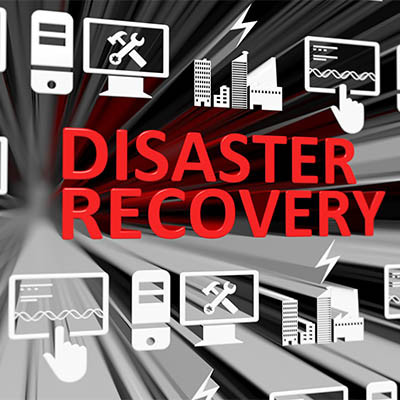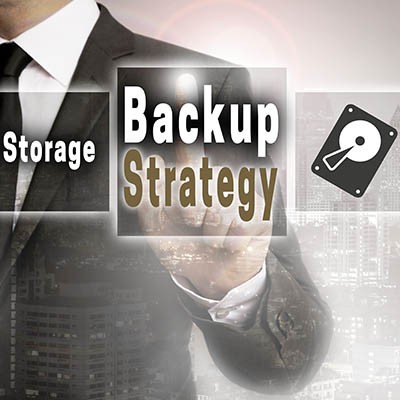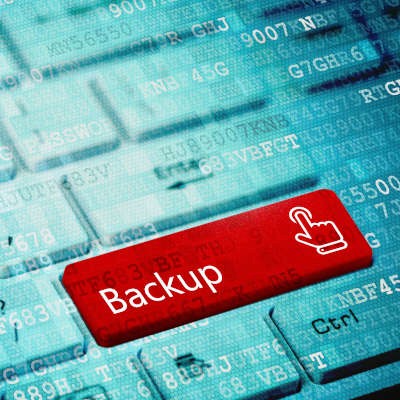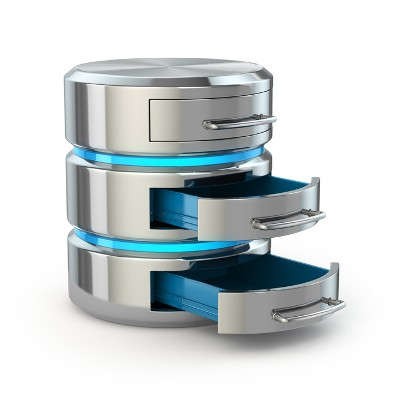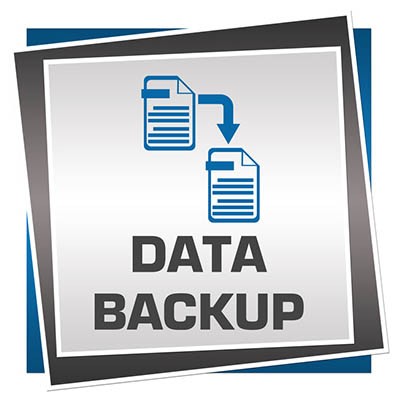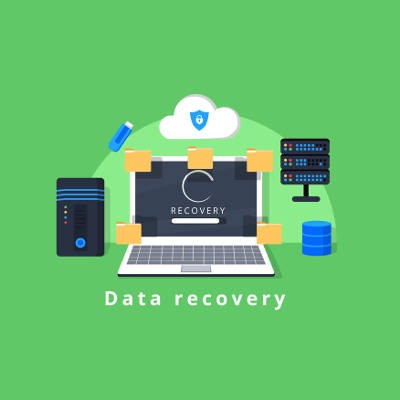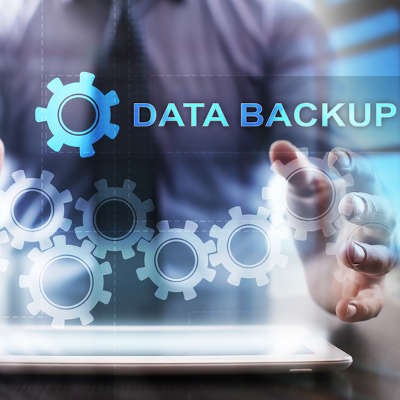Disaster recovery is one of those platforms that businesses don’t want to have to use, but need to spend ample time planning in case they do. This is rather unique in business, so only by truly understanding what you need to get out of your disaster recovery strategy can you create the comprehensive DR system that your business requires.
k_Street Consulting, LLC Blog
You would be surprised what types of things can disrupt your business’ ability to operate. It could be something as benign as a power or Internet outage, something inevitable like a hardware component failure, or something so nefarious as ransomware. Regardless of what happens, every business should have a plan in place to respond to any situation and recover quickly and effectively. For the business that depends on data, having it properly backed up solves one major issue. This month, we thought we’d go over some of the basic questions you need to answer about your data backup and recovery process.
Backup strategies vary. Some companies choose theirs for its value. Some back up everything. Some ignore it all together. While we definitely don’t advise the latter, we do understand that it is a financial investment for what is essentially insurance. What’s more effective is building a backup plan that fits the type of data you create and store.
If you are a regular visitor to our blog, you know just how important we think data backup is for any business that relies on data. If your business stores and creates data, you need to have a backup strategy in place. It’s that simple. Today, we want to discuss how to improve your data backup strategies with a BDR.
How are you protecting your data from disaster? If you don’t have a backup and disaster recovery platform in place you are missing one of the most crucial parts of managing your business’ data. Think about it, if your organization were to suddenly lose a significant portion of its data, would it be able to continue to function effectively?
When we start working with a new client, we’re often left surprised at their data backup and recovery strategy. It’s not always that they don’t really have a strategy for it (although this happens more than we’d like to admit), it’s just how sure many of them are that they don’t need to spend a lot of time and effort on it. This ambivalence is a major mistake that often leads to hardship. Today, we will talk a little bit about why backup is such a big deal.
It has reached the point that, if you have a business, you had better have a backup prepared. Otherwise, the digital data that modern businesses like yours rely on is vulnerable to loss. Of course, depending on the age of your business, you may have data that no longer applies to your operations. That’s why we’re going over how to select the data you should continue to back up.
Businesses need to be prepared for the worst these days, as disasters could strike at any moment and cause irreparable data loss. One of the ways your business can break in the new year with confidence is with a backup and disaster recovery strategy that minimizes downtime and keeps your organization safe from events beyond your control. We’ll help you put together the best backup solution for your business’ needs.
Data is an asset, there’s no getting around this fact. Therefore, your business needs to consider it important enough to protect with a data backup and disaster recovery solution, as even something unlikely, like a natural disaster or hacking attack, could place your organization in peril. We’re going to take a look at some of the different kinds of data backup and disaster recovery you can expect to see, as well as four terms that you should understand.
Of any of your business implementations, a data backup and disaster recovery system is a serious contender for the most important. However, many neglect to prepare for a data loss event or disaster, which means they leave their business vulnerable to the ill effects of both. Protecting your business begins with a data backup and disaster recovery solution that prepares you for a worst-case scenario.
Data backup may not directly help you boost your productivity, but it is a core component of any responsible business’ continuity plan. Each year, thousands of businesses that don’t take threats into account are forced to close their doors because they didn’t have a contingency plan in place. For every business that plans for the worst there are two that don’t, either because they see the strategy as too cost prohibitive, or because they just don’t understand the amount of threats that could put their business in the position where they would need to close.
If you’re ever asked about your data backup solution, the last answer that you want to give is that you don’t know what measures you’re implementing to keep your organization safe from a worst-case scenario. There are different kinds of data backup and disaster recovery, but they almost always depend on two specific benchmarks: Recovery Point Objective and Recovery Time Objective.
How does your business manage its data backups? How about restoring them in the event of a disaster scenario? These are questions that no business wants to have no answer to on the spot. You want to have both data backup and disaster recovery put into place to avoid losing a considerable amount of progress.
March 31, 2018 is World Backup Day. Data is a commodity, but unlike other commodities--it can be replicated without hurting its value. As a result, data backup has become a critical need for the modern business. World Backup Day has been created to remind people to protect their assets by backing up their files.
Let’s take a moment to imagine the worst-case scenario for your business. You’ve been struck with a crippling disaster and your infrastructure is rendered inoperable. Maybe it was a fire that burned your office to the ground, or a hardware failure that wiped out any information located on your local network. Maybe a hacker infiltrated your IT infrastructure and installed ransomware on your network, or a user error led to a compromised account and infected network.
If you were to lose your business’ data, would you be able to continue operations? The answer is almost always “no,” so you need to take precautions before you inevitably suffer from an unpredictable threat like a hardware failure or hacking attack. Unfortunately, the average small business might have trouble affording such comprehensive coverage, which is a trend that we’re trying to help local organizations buck. If you’re stuck on data recovery, we want to help you better understand data redundancy.
If we asked you how you back up your data, would you be able to respond with enough knowledge to seriously talk about the topic? Many small organizations are under the impression that data backup is only necessary if your business suffers from a data breach or data loss incident. However, the truth is that if you want to ensure the future of your business, data backup is absolutely crucial.
 One of the most valuable assets of your business is its data. Hackers know this; it’s why they choose to go after those who fail to protect their information. Without your data, you’ll lose valuable time and expenses that can potentially result in the complete and total destruction of your business. This is why it’s so crucial that your organization understands how to integrate a proper data backup solution that optimizes business continuity.
One of the most valuable assets of your business is its data. Hackers know this; it’s why they choose to go after those who fail to protect their information. Without your data, you’ll lose valuable time and expenses that can potentially result in the complete and total destruction of your business. This is why it’s so crucial that your organization understands how to integrate a proper data backup solution that optimizes business continuity.


